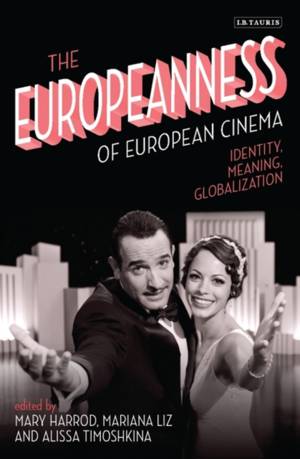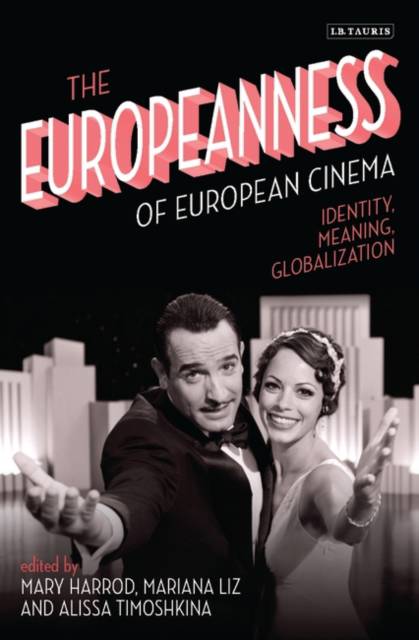
Bedankt voor het vertrouwen het afgelopen jaar! Om jou te bedanken bieden we GRATIS verzending (in België) aan op alles gedurende de hele maand januari.
- Afhalen na 1 uur in een winkel met voorraad
- In januari gratis thuislevering in België
- Ruim aanbod met 7 miljoen producten
Bedankt voor het vertrouwen het afgelopen jaar! Om jou te bedanken bieden we GRATIS verzending (in België) aan op alles gedurende de hele maand januari.
- Afhalen na 1 uur in een winkel met voorraad
- In januari gratis thuislevering in België
- Ruim aanbod met 7 miljoen producten
Zoeken
The Europeanness of European Cinema
Identity, Meaning, Globalization
€ 271,45
+ 542 punten
Omschrijving
From The Artist to The White Ribbon, from Oscar to Palme d'Or-winning productions, European filmmaking is more prominent, world-wide, than ever before. This book identifies the distinctive character of European cinema, both in films and as a critical concept, asking: what place does European cinema have in an increasingly globalized world? Including in-depth analyses of production and reception contexts, as well as original readings of key European films from leading experts in the field, it re-negotiates traditional categories such as auteurism, art cinema and national cinemas. As the first publication to explore 'Europeanness' in cinema, this book refocuses and updates historically significant areas of study in relation to this term. Leading scholars in European cinema - including Thomas Elsaesser, Tim Bergfelder, Anne Jackel, Lucy Mazdon and Ginette Vincendeau - acknowledge the transnational character of European filmmaking whilst also exploring the oppositions between European and Hollywood filmmaking, considering the value of the 'European' label in the circulation of films within and beyond the continent.
The Europeanness of European Cinema makes a lively, timely intervention in the fields of European and transnational film studies.
The Europeanness of European Cinema makes a lively, timely intervention in the fields of European and transnational film studies.
Specificaties
Betrokkenen
- Uitgeverij:
Inhoud
- Aantal bladzijden:
- 288
- Taal:
- Engels
- Reeks:
Eigenschappen
- Productcode (EAN):
- 9781780769295
- Verschijningsdatum:
- 18/12/2014
- Uitvoering:
- Hardcover
- Formaat:
- Genaaid
- Afmetingen:
- 157 mm x 234 mm
- Gewicht:
- 576 g

Alleen bij Standaard Boekhandel
+ 542 punten op je klantenkaart van Standaard Boekhandel
Beoordelingen
We publiceren alleen reviews die voldoen aan de voorwaarden voor reviews. Bekijk onze voorwaarden voor reviews.








